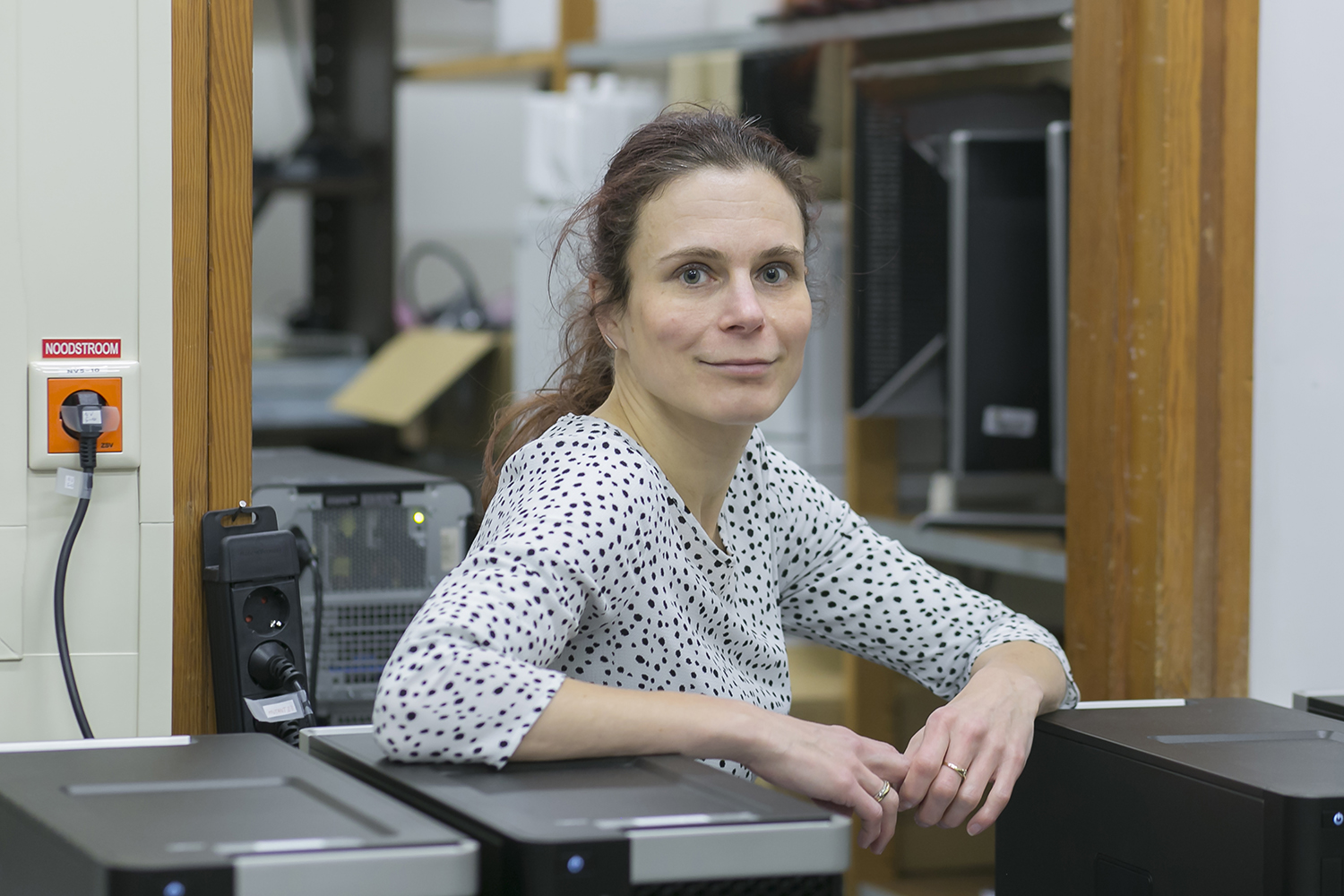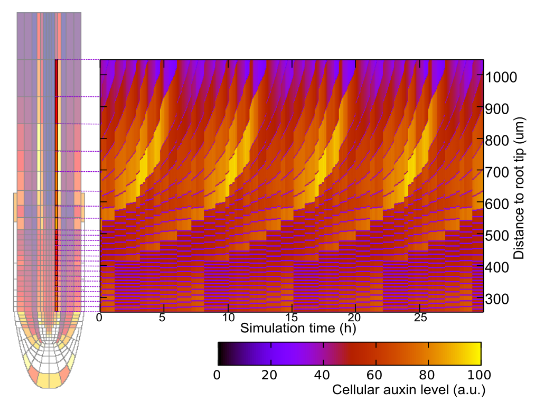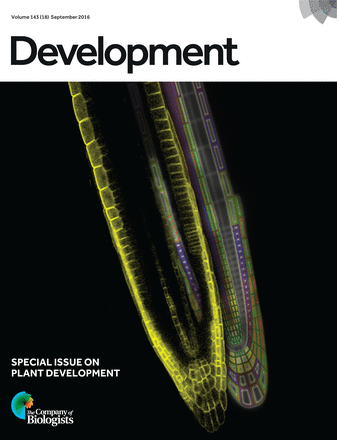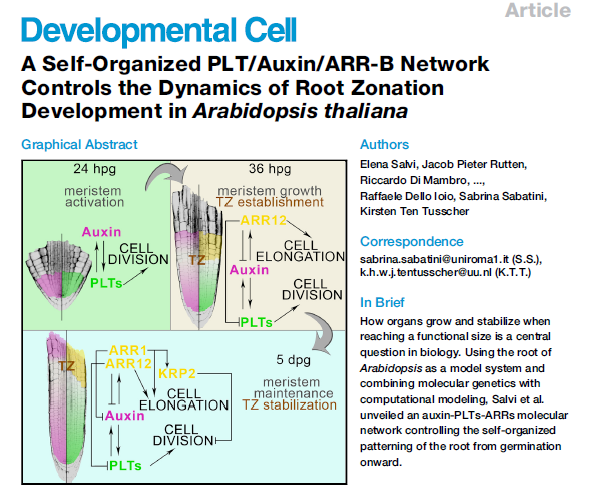
|
Kirsten ten TusscherComputational Developmental BiologyIBB, Department of Biology Faculty of Science Utrecht University Room Z510 Padualaan 8 3584 CH Utrecht The Netherlands phone: +31 30 2533637 fax: +31 30 2513655 email: k.h.w.j.tentusscher@uu.nl |
| Home | Research | Team Publications | Source codes | Job opportunities Projects for Internships | |
Research Interests
|
|
In addition to my position in the Theoretical Biology group in the IBB institute, I am the chair of the Experimental and Computational Plant Development group in the IEB institute. Through these roles I aim to contribute to the field of plant developmental biology through a tight integration of computational and experimental approaches as well as in a broader sense build bridges between the different groups and institutes of the Biology department. My own background is in computational biology, and as such my expertise is to develop state of the art multi-scale simulation models to decipher the complex patterning processes that take place during the development of multicellular organisms. In the last 10-14 years, my research has focussed itself on plant developmental patterning processes, their basic mechanisms and the way these are responsive to environmental conditions. Developmental programs typically involve interactions between processes at the genetic, cellular, tissue, organ and whole organism level with some processes occurring at the milleseconds whilst others playing at the days to week timescales. Integrative computational models taking into account these multi-feedback multi-scale properties have proven to be extremely powerfull for deciphering these complex processes. Furthermore, these models enable one to do the experimentally impossible: We can test what would be the functional consequences if a certain property would arise through an alternative, non-existing patterning process rather than the actually existing one. This enables us to answer not only how a particular developmental process is operating, but also to adress why it is operating in that particular manner. Finally, using computational models simulating the evolution of developmental programs, we can -in silico- replay the evolutionary tape again and again, and adress both how and why particular developmental programs evolved. In my research on plant development my research focuses on the patterning of the root system and how the developmental programs respond to environmental conditions. As examples, we investigate how plants throughout their life keep generating new lateral roots, how root system architecture responds in response to saline, nitrate or phosphate starved soil, or how individual roots grow towards nutrients or away from salt. For this research we collaborate intensively both with experimentalists in the ECPD group as well as with other experimental groups. For more details on the type of research we currently do please have a look at our recent publications, job and internship opportunities. |






